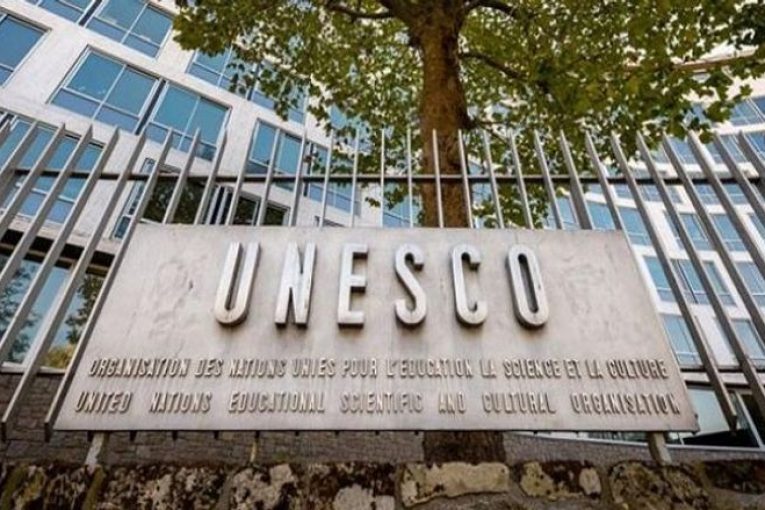
اعداد : د. صفاء النعيمي
- المركز الديمقراطي العربي
- مجلة القانون الدستوري والعلوم الإدارية : العدد الخامس عشر أيار – مايو 2022 المجلد 5 ، مجلة دولية محكمة تصدر عن المركز الديمقراطي العربي المانيا- برلين.
- تعنى المجلة في مجال الدراسات والبحوث والأوراق البحثية في مجالات الدراسات الدستورية والعلوم الإدارية المقارنة – نشر البحوث في اللغات ( العربية – الفرنسية – الإنجليزية )
للأطلاع على البحث “pdf” من خلال الرابط المرفق :-
ملخص :
تأسست محكمة العدل الدولية عام 1945م، وبدأت أعمالها في العام اللاحق، وحلت محل المحكمة الدائمة للعدالة الدولية سنة 1946م ويُشار إليها بصورة شائعة باسم المحكمة العالمية وهي الهيئة القضائية الرئيسية لمنظمة الأمم المتحدة. ويقع مقرها في لاهاي بهولندا. وهي الجهاز الوحيد من بين الأجهزة الستة للأمم المتحدة الذي لا يقع في نيويورك. وهي كجهاز قضائي دولي لها دورا واضحا في معظم القضايا الدولية ومن ضمنها المتعلقة بالأسلحة النووية، قبل ظهور المحكمة الجنائية الدولية 1998.
يأتي دور القضاء الدولي في المساعدة في تحقيق هذا الهدف السامي والمتمثل في الحد من انتشار أسلحة الدمار الشامل وحظر استخدامها. متمثلا في محكمة العدل الدولية والتي أصدرت رأيا استشاريا بتحريم استخدام أسلحة الدمار الشامل أو التهديد باستخدامها، والتي تشكل آلية قضائية مهمة لتفعيل الجهود الدولية نحو منع انتشار أسلحة الدمار الشامل، إلا أن دور القضاء يظل قاصرا على استخدامات هذه الأسلحة وقت النزاعات المسلحة الدولية ، ومتوقفا على التعاون المخلص والكامل من جانب الدول، وهو ما يضعف من إيجابية النتائج المرجوة، والمتمثل في المنع الكامل لإنتاج وتخزين أسلحة الدمار الشامل، طالما ظلت الدول بمنأى عن المسالة الدولية.
ولا يمكن الاحتجاج بأن هذه الدول تسأل مدنيا، أو أنها تخضع للعقوبات واتخاذ اجراءات رادعة ضد الدول من قبل مجلس الأمن، حيث إن هذه الاجراءات غير كافية ، وغير موضوعيه في ذات الوقت لتأثرها بالاتجاهات السياسية للدول الكبرى، وقدرتها على التأثير والتوجيه لقرارات الأجهزة المعنية بالأمن الجماعي الدولي، ولنا فيما حدث للعراق العبرة والمثل؛ فقد تم تدمير العراق واحتلاله بحجة امتلاكه لأسلحة الدمار الشامل، بالرغم من ثبوت عدم صحة هذه الادعاءات فيما بعد، وفي الوقت ذاته فإن القاصي والداني وكل الشواهد تأكد امتلاك اسرائيل لأسلحة الدمار الشامل وبالرغم من ذلك لا تتعرض ولو للانتقاد من قبل المجتمع الدولي. لذلك رأينا بحث هذا الموضوع من جوانبه القانونية ذات الصلة بالقانون الدولي العام، ومع ذلك فقد عالجت محكمة العدل الدولية المشاكل المرتبطة بالأسلحة النووية بالفعل في العديد من الحالات، سواء في الحالات المثيرة للجدل أو الآراء الاستشارية. وقد أُنشئت آخر الحالات في نهاية أبريل 2014 عندما قدمت جمهورية جزر مارشال طلبات ضد تسع دول حائزة للأسلحة النووية، بسبب إخفاقها المزعوم في الوفاء بالتزاماتها فيما يتعلق بوقف سباق التسلح النووي في وقت مبكر وبطريقة نزع السلاح النووي.
كما وتم اللجوء لمحكمة العدل الدولية للنظر في مدى مشروعية التجارب النووية التي أجرتها فرنسا في المحيط الهادئ، وتم إقامة دعوة من طرف كل من أستراليا ونيوزلندا ضد فرنسا على أساس الأضرار البيئية جراء التجارب النووية.
وقد توصلت المحكمة على عدم مشروعية تجارب الأسلحة النووية نظرا للأضرار التي تنتجها ، وهو في ذات الوقت يشكل مخالفة للالتزامات الدولية.
Abstract
The International Court of Justice was established in 1945, and began its work the following year. It replaced the Permanent Court of international Justice in 1946, commonly referred to as the World Court, and it is the main judicial body of the United Nations. It is headquartered in The Hague, Netherlands. It is the only one of the six organs of the United Nations that is not located in New York. As an international judicial body, it had a clear role in most international cases, including those related to nuclear weapons, before the emergence of the International Criminal Court in 1998 The role of the international judiciary comes in helping to achieve this lofty goal of limiting the spread of weapons of mass destruction and banning their use. Represented by the International Court of Justice, which issued an advisory opinion prohibiting the use or threat of use of weapons of mass destruction, which constitutes an important judicial mechanism to activate international efforts towards preventing the spread of weapons of mass destruction. However, the role of the judiciary remains limited to the uses of these weapons during international armed conflicts, and depends on Sincere and complete cooperation on the part of states, which weakens the positive results desired, which is the complete prohibition of the production and stockpiling of weapons of mass destruction, as long as states remain away from the international issue.
It cannot be argued that these countries are questioning a civilian, or that they are subject to sanctions and taking deterrent measures against countries by the Security Council, as these measures are insufficient and subjective at the same time because they are affected by the political trends of major countries, and their ability to influence and direct the decisions of the bodies concerned with collective security the international community, and we have a lesson and an example in what happened to Iraq; Iraq was destroyed and occupied on the pretext that it possessed weapons of mass destruction, although these allegations were later proven false. At the same time, far and near and all the evidence confirms Israel’s possession of weapons of mass destruction, despite that it is not even criticized by the international community. So we have seen this topic discussed from its legal aspects related to public international law, and yet the International Court of Justice has already dealt with the problems associated with nuclear weapons in many cases.
The International Court of Justice was also resorted to consider the legality of the nuclear tests conducted by France in the Pacific Ocean, and a lawsuit was filed by Australia and New Zealand against France on the basis of the environmental damage caused by the nuclear tests.
The court concluded that nuclear weapons tests were illegal due to the damage they produce, which at the same time constitutes a violation of international obligations.
.
رابط المصدر:
